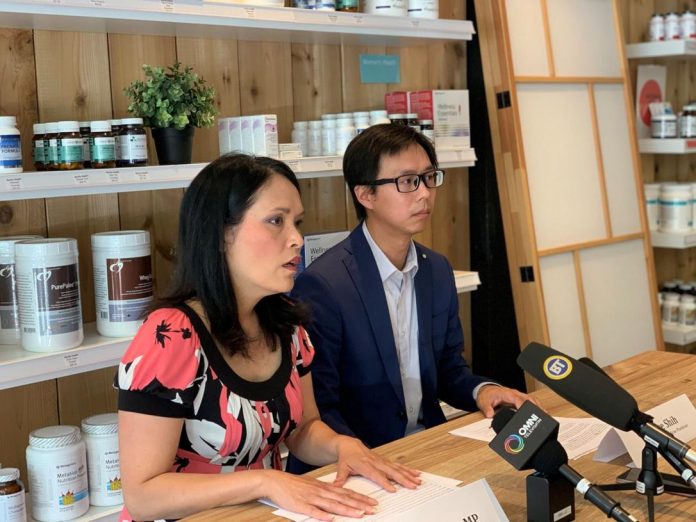Is his online biography, he writes that “seeing people getting better from their illnesses gives me a great sense of accomplishment and joy.”
But on Monday, Shih said he worries that a federal government bid to improve labeling around natural health products could undermine 3,000 years of practice and evidence.
Next year, Health Canada is to begin consultations on amendments to the Natural Health Products Regulations, including ways to improve labeling, address “evidence standards” on health claims, and give the government department additional powers to require a recall or label change.
Health Canada said in a statement to Star Vancouver that the department is “focused on improving labeling of natural health products.”
The prospect of the changes, however, has worried Shih and others in the field of natural health, who on Monday joined a pair of New Democrat MPs to warn of unintended consequences to the government action.
“The proposed regulation change from Health Canada does not support … traditional claims and ignores our professional training,” Shih told a news conference.
“Our patients will end up either paying more for the same products they’ve been using for years or without any product to use. It’s unnecessary and creating yet another barrier for our patients.”
Under the current Natural Health Products Regulation, which has been in effect since 2004, products made in Canada and manufactured here already must have licenses. To obtain a product or a site license, Health Canada states that “specific labeling and packaging requirements must be met, good manufacturing practices must be followed, and proper safety and efficacy evidence must be provided.”
Health critic and NDP MP Don Davies said he doesn’t think more regulation to the industry is necessary.
The MP for Vancouver-Kingsway called Health Canada’s proposed changes “secretive.”
“Regulation has been in force for 15 years and it has worked very well. Industry is comfortable with the rules and structures they have to follow, consumers get the information that they need and they are assured of the safety and the high quality of products that they rely on,” Davies said.
Shih and the others say they fear that additional regulatory changes could result in the same standards being required in their products’ proofs of claim as over-the-counter pharmaceuticals. Most of the makers of these natural health products, small to medium-sized businesses, would have difficulty coming up with thousands of dollars to conduct clinical trials, they said.
If natural health products were required to go through clinical trials, Shih says, it could mean that those ingredients would be wiped out from the market or that the costs would be passed on to the consumer.
Deane Parkes, a natural health food consultant who first opened a store on the North Shore in 1975, says more regulation puts Canadian businesses at a disadvantage because consumers can easily purchase U.S. products online.
“It’s really hard for us to understand why they keep harassing us for safety when safety is not an issue … The ingredients inside are completely safe.”
Instead, Parkes said the government should be checking that companies are selling the actual ingredients that are on the labels.
In its statement, the federal government said it is committed to “preserving access to a wide range of health products while making sure that Canadians have the information they need to make informed choices.”









